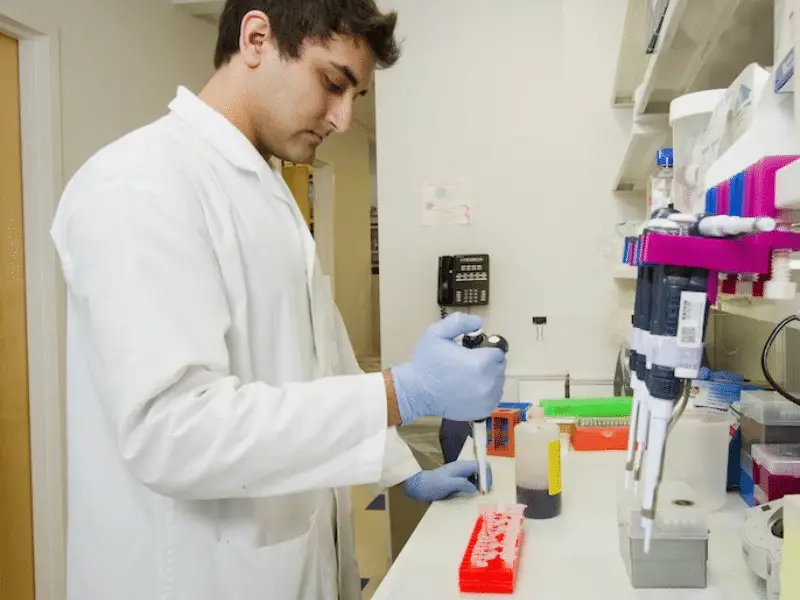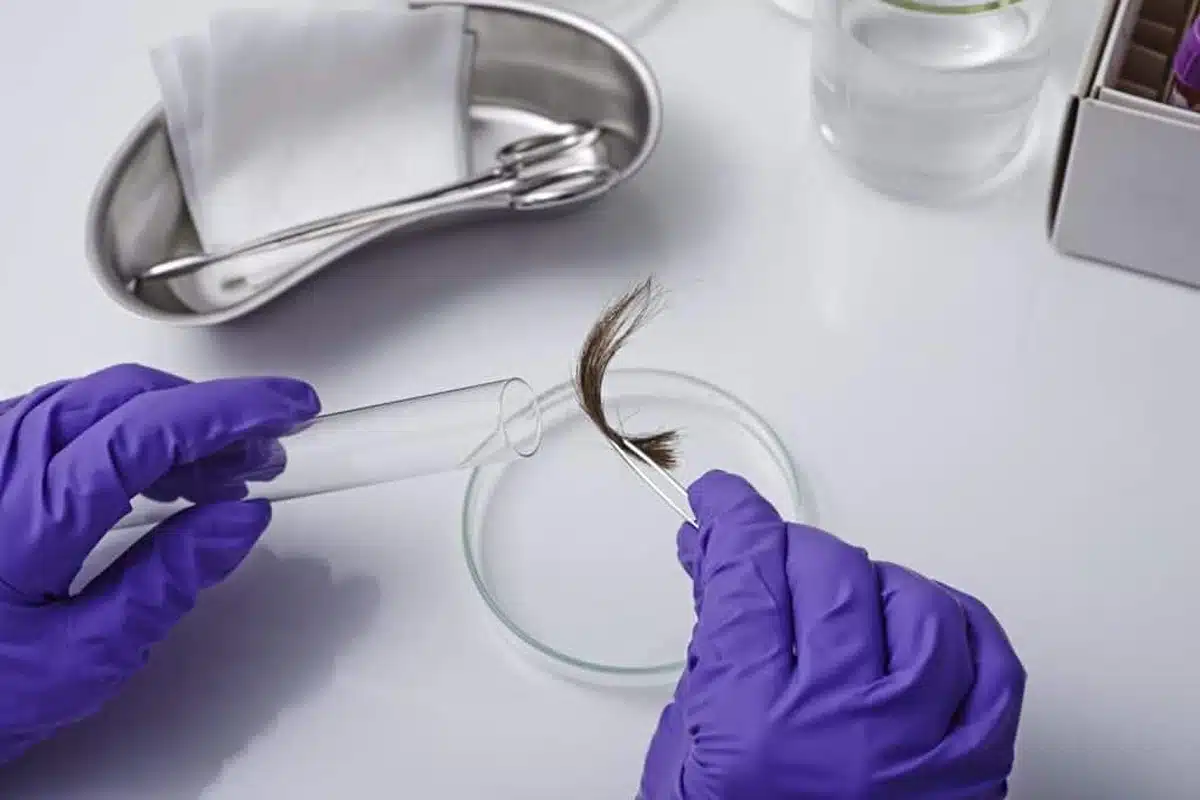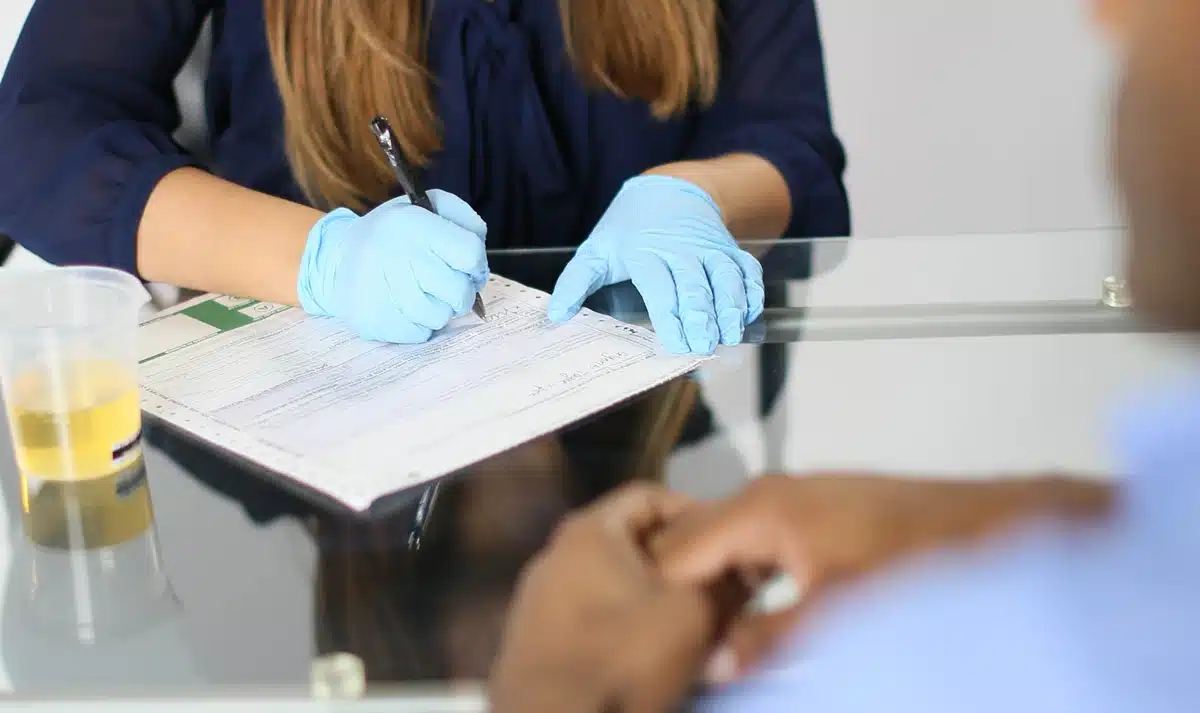Embark on a journey where financial aspirations meet ethical standards. As you consider a career as a bank teller, a burning question arises: Do bank tellers get drug tested?
Bank tellers may undergo drug testing as part of stringent measures to maintain trust and security in the banking industry. However, not all bank implement drug tests.
Quick Navigation
- Understanding Drug Testing in the Banking Industry
- Factors Affecting Drug Testing for Bank Tellers
- Preparing for a Bank Teller Drug Test
- Frequently Asked Questions
- Dynamic Takeaway: Empowering Your Bank Teller Journey
In this article, we’ll unravel the intricacies of regulations and expectations, empowering you to make informed decisions about your future career in the banking community.
Understanding Drug Testing in the Banking Industry

If you’re curious about drug testing policies at banks, it’s important to note that some banks do require drug tests for certain positions, including bank tellers.
The specific drugs that banks test for can vary, but common substances include marijuana, cocaine, and opioids.
Banks typically use urine or hair follicle tests as the most common types of drug tests in the industry.
Drug Testing Policies at Banks
Unlike other industries, banks generally have strict drug testing policies for their employees, including bank tellers. This is due to several factors, such as the legality of drug testing and privacy concerns.
Banks are highly regulated institutions that handle large amounts of money and sensitive customer information. As a result, they have a responsibility to ensure that their employees are reliable and trustworthy.
Drug testing helps in identifying any potential substance abuse issues that could compromise an employee’s ability to perform their duties effectively and ethically.
The frequency of drug testing at banks varies depending on the institution’s policy. Some banks may conduct pre-employment drug tests, while others may also conduct random drug tests or test employees if there is reasonable suspicion of substance abuse.
The procedures for drug testing typically involve urine or saliva samples, which are then sent to a laboratory for analysis.
While banks have the right to implement these policies, it’s important to note that employees also have rights when it comes to drug testing.
These rights include being informed about the process, ensuring confidentiality of results, and having the opportunity to dispute positive test results through retesting or providing medical documentation for prescription medications.
Overall, these strict drug testing policies aim to create a safe and secure environment within the banking industry while protecting both customers’ interests and employee well-being.
What Drugs Do Banks Test For?

Drug testing is legal in most jurisdictions as long as it’s conducted in a fair and non-discriminatory manner.
If an employee fails a drug test, the consequences can vary depending on the bank’s policies. In some cases, it may result in termination or suspension from work.
However, employees also have rights when it comes to drug testing.
They should be informed about the procedure and have the opportunity to provide any necessary documentation or explain any positive results.
The frequency of drug testing varies among banks but is usually done during pre-employment screening and may be conducted randomly or as part of routine checks.
The procedures involve collecting urine samples that are then sent to a certified laboratory for analysis.
What Types of Drug Tests are Used?
When it comes to drug testing, you’ll find that various types of tests are commonly used.
Different drug testing methods are employed by banks to ensure a safe and drug-free workplace. The most common methods include urine tests, hair follicle tests, saliva tests, and blood tests.

Each method has its own advantages and disadvantages in terms of accuracy, detection window, and cost.
The legality of drug testing is an important consideration. In many countries, including the United States, it’s legal for employers to conduct drug tests as long as they follow certain guidelines.
However, there are privacy concerns associated with drug testing. Employees may feel their privacy is being invaded when required to provide bodily fluids or undergo other forms of testing.
The frequency of drug testing varies from bank to bank. Some banks may have a one-time pre-employment test, while others may conduct random or periodic tests throughout employment.
The accuracy of these tests can vary depending on the method used and the specific drugs being tested for.
Factors Affecting Drug Testing for Bank Tellers
You may be wondering what factors actually influence the drug testing process for bank tellers. There are several key factors that play a role in determining how drug testing is conducted for these employees.

One important factor is the legal implications surrounding drug testing in the workplace.
Banks must comply with federal and state laws when it comes to drug testing, ensuring they adhere to privacy regulations and maintain a safe work environment.
Employee privacy is another significant consideration when it comes to drug testing for bank tellers.
While employers have the right to ensure their staff members are not under the influence of drugs while on duty, they must also respect their employees’ rights to privacy.
This means using methods that preserve dignity and confidentiality throughout the testing process.
The frequency of drug testing is also an important factor to consider. Some banks may choose to conduct random tests periodically, while others may opt for pre-employment screenings or only test employees if there is reasonable suspicion of substance abuse.
The cost of drug testing can also impact how frequently it is done. Banks need to weigh the financial costs against the potential benefits of maintaining a drug-free workplace.
Lastly, one crucial factor influencing drug testing for bank tellers is its potential impact on job performance.
Employers want to ensure that their staff members are alert and capable of performing their duties effectively, without any impairment caused by drugs.
Overall, these factors collectively shape how banks approach and implement drug testing procedures for their tellers, aiming to create a safe and productive working environment while respecting employee rights and privacy concerns.
Preparing for a Bank Teller Drug Test
To adequately prepare for a drug test as a bank teller, it’s essential to understand the necessary steps and guidelines to ensure compliance with legal requirements and maintain a safe work environment.
Here are some drug test preparation tips to help you navigate this process smoothly:
Debunk common drug test misconceptions

Many people believe that drinking excessive amounts of water or using detox products can help cheat the test. However, these methods are unreliable and may even lead to additional complications.
It’s best to focus on maintaining a healthy lifestyle and avoiding any substances that could potentially trigger a positive result.
Understand your legal rights
Employers have the right to conduct drug tests as part of their duty to provide a safe workplace environment. However, they must follow proper protocols and respect your privacy during the testing process.
Knowing detection windows and positive results
Knowing the drug test detection windows is also beneficial. Different drugs stay in your system for varying periods of time, so being aware of these timelines can help you plan accordingly.
Lastly, if you do receive a positive drug test result, it’s important to handle it appropriately.
Seek guidance from HR or employee assistance programs, who can offer support and resources for dealing with potential consequences.
By following these guidelines and being well-informed about the process, you can confidently prepare for a bank teller drug test while ensuring compliance with legal requirements.
Frequently Asked Questions
How often are bank tellers typically drug tested?
Bank tellers are subject to regular drug tests, but the frequency varies depending on the bank’s policies.
These procedures ensure compliance with regulations and maintain a safe banking environment. Stay informed about drug test requirements to avoid any surprises.
Can bank tellers refuse to take a drug test?
Bank tellers can refuse to take a drug test, as they have legal rights and privacy concerns.
However, it’s important to understand the employer policies and potential consequences for refusing. Workplace safety and employee rights should also be considered.
Are there any specific drugs that are commonly tested for in the banking industry?
Commonly tested drugs in the banking industry include marijuana, cocaine, amphetamines, opiates, and benzodiazepines.
Drug testing policies aim to ensure a safe work environment and comply with legal requirements while considering privacy concerns. Alternative screening methods are available.
Do bank tellers have to pay for their own drug tests?
Bank tellers are responsible for covering the cost of their own drug tests. These tests are typically conducted on a regular basis to ensure a drug-free workplace. Refusing a drug test or failing one can lead to serious consequences for bank tellers.
Are there any consequences for bank tellers who fail a drug test?
Failing a drug test as a bank teller can have serious consequences, including potential job loss. Drug use can impair performance and violate legal rights. Employers may offer assistance programs for those struggling with addiction.
Dynamic Takeaway: Empowering Your Bank Teller Journey

Drug testing is a crucial aspect of the banking industry to ensure the safety and security of both employees and customers.
While it may vary from one bank to another, many banks do require their tellers to undergo drug testing as part of their employment process.
According to a recent survey by the American Bankers Association, approximately 80% of banks in the United States conduct drug tests for their employees.
This statistic highlights the seriousness with which banks approach maintaining a drug-free workplace, emphasizing their commitment to protecting the financial well-being of their clients.

